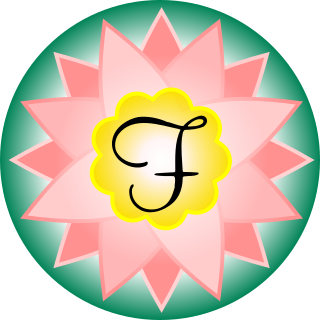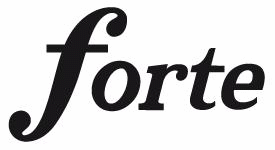
LilyPond is a computer program and file format for music engraving. One of LilyPond's major goals is to produce scores that are engraved with traditional layout rules, reflecting the era when scores were engraved by hand.

Finale is a proprietary music notation software developed and released by MakeMusic for Microsoft Windows and macOS. Finale has been regarded as one of the industry standards for music notation software.

GarageBand is a line of digital audio workstations for macOS, iPadOS, and iOS devices that allows users to create music or podcasts. GarageBand is developed by Apple for macOS, and was once part of the iLife software suite, along with iMovie and iDVD. Its music and podcast creation system enables users to create multiple tracks with pre-made MIDI keyboards, pre-made loops, an array of various instrumental effects, and voice recordings.

A scorewriter, or music notation program is software for creating, editing and printing sheet music. A scorewriter is to music notation what a word processor is to text, in that they typically provide flexible editing and automatic layout, and produce high-quality printed results.

Rosegarden is a free software digital audio workstation program developed for Linux with ALSA and Qt4. It acts as an audio and MIDI sequencer, scorewriter and musical composition and editing tool. It is intended to be a free alternative to such applications as Cubase.
capella is a musical notation program or scorewriter developed by the German company Capella Software AG, running on Microsoft Windows or corresponding emulators in other operating systems, like Wine on Linux and others on Apple Macintosh. Capella requires to be activated after a trial period of 30 days. The publisher writes the name in lower case letters only. The program was initially created by Hartmut Ring, and is now maintained and developed by Bernd Jungmann.

Mozart the music processor is a proprietary WYSIWYG scorewriter program for Microsoft Windows. It is used to create and edit Western musical notation to create and print sheet music, and to play it via MIDI.

MusEdit is a scorewriter program for Microsoft Windows, developed by Doug Rogers / Yowza software and first launched in 1997. The current version (4.0.3) was released in 2010.
ABC notation is a shorthand form of musical notation for computers. In basic form it uses the letter notation with a–g, A–G, and z, to represent the corresponding notes and rests, with other elements used to place added value on these – sharp, flat, raised or lowered octave, the note length, key, and ornamentation. This form of notation began from a combination of Helmholtz pitch notation and using ASCII characters to imitate standard musical notation that could facilitate the sharing of music online, and also added a new and simple language for software developers, not unlike other notations designed for ease, such as tablature and solfège.

Progression, previously stylized as PROGRESSION, is a music creation and performance computer program created by NOTION Music. Created for use on Microsoft Windows and macOS laptops or desktops, Progression focuses on composition for guitar, but can also be used to compose for keyboards, bass, and drums. As of April 2019, Progression is no longer available for sale in the PreSonus online store, nor via dealers worldwide.

Notion, previously stylized as NOTION, is a computer software program for music composition and performance, created by NOTION Music of Greensboro, North Carolina, now owned by PreSonus. It is available for Microsoft Windows, macOS and iOS.

Overture is a music notation (scorewriter) program for Windows and Macintosh platforms, published and developed by Sonic Scores. Visually, the Overture scoring interface resembles Encore, an earlier notation program, on which the same author had previously worked. While Overture is primarily a scorewriter program, its graphic interface also has the ability to allow editing the score's MIDI audio playback data in the manner of sequencer and digital audio workstation (DAW) software. Additionally, to facilitate synchronization of film and video scoring to live action, it has the ability to play film video footage synchronized to the score and to insert precise time markers into the score.

Frescobaldi is an editor for LilyPond music files. It aims to be powerful, yet lightweight and easy to use. Frescobaldi is free software, freely available under the GNU General Public License. It is designed to run on all major operating systems. It is named after Girolamo Frescobaldi, an Italian composer of keyboard music in the late Renaissance and early Baroque period.
This is a comparison of music notation programs.

Mus2 is a music application for the notation of microtonal works and, specifically, Turkish maqam music. Unlike most other scorewriters, Mus2 allows the user to work in almost any tuning system with customizable accidentals and play back the score with accurate intonation. The application has also received praise for its clean interface and usability.
MusicEase is a proprietary WYSIWYG scorewriter created by Gary Rader and produced by MusicEase Software. It enables computers using Microsoft Windows and Mac OS X to produce musical notation and listen to them in MIDI.

Forte is a music notation program developed by the German company Lugert Verlag, located in Handorf. Its name is derived from the dynamic marking of forte. The program is available in both German and English.












